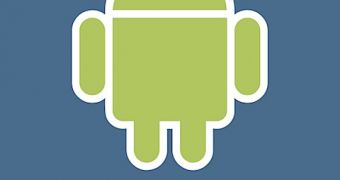The Android Developers team announced on Thursday that developers looking for the opportunity to call into native code from their Android applications could download the Android Native Development Kit, which would provide them with the tools necessary to embed components that use the native code in their applications. According to the Android Developers team, certain classes of applications will be able to benefit from the new Android NDK, as there will be increases in speed in some cases of the reuse of existing code in others. The NDK offers developers the possibility to implement parts of their applications while making use of native-code languages such as C and C++.
The NDK comes with: - A set of tools and build files used to generate native code libraries from C and C++ sources - A way to embed the corresponding native libraries into application package files (.apks) that can be deployed on Android devices - A set of native system headers and libraries that will be supported in all future versions of the Android platform, starting from Android 1.5 - Documentation, samples, and tutorials.
As many of you might already know, Android applications run in the Dalvik virtual machine. The newly released Android NDK does not enable developers to come up with native-only applications, as the primary runtime for the Android remains the Dalvik virtual machine. One more thing that should be added is that the NDK comes with support for the ARMv5TE machine instruction set, while also offering stable headers for libc, the standard C library; libm, the standard math library; the JNI interface; libz, the common ZLib compression library; and liblog, used to send logcat messages to the kernel.
The Android team also says that not all applications will be able to benefit from the new NDK. There will be both benefits and drawbacks, and developers will have to balance them. Even so, the Android NDK arrives with a build system meant to offer leveraged efficiency while working with sources. “The build system compiles the sources and places the shared libraries directly in your application project,” says the team, while also adding that only the above mentioned libraries are stable in this NDK. A set of documentation has been included in the NDK as well (available in the <ndk>/docs/ directory), describing the way in which shared libraries can be created from the Android device.
While releasing the Android NDK, the team has also updated the Android 1.5 SDK, which is now available as Release 2. Given the fact that the Android NDK is a companion tool to the Android SDK, you should download the updated SDK as well. According to the Android team, the NDK has been designed for use only in conjunction with the Android SDK, so both of them should be installed.
Download Android 1.5 NDK for Windows PCs Download Android 1.5 NDK for Mac Download Android 1.5 NDK for Linux
Download Android 1.5 SDK Release 2 for Windows PCs Download Android 1.5 SDK Release 2 for Mac Download Android 1.5 SDK Release 2 for Linux

 14 DAY TRIAL //
14 DAY TRIAL //